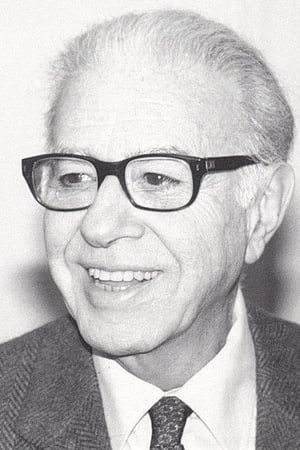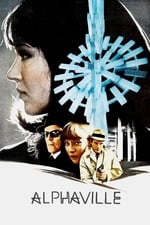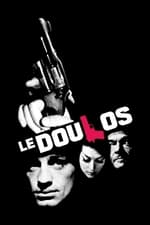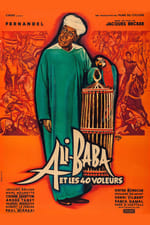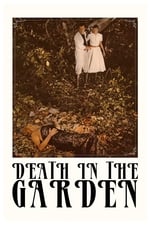Personal Info
Known For Sound
Known Credits 78
Gender Male
Birthday January 28, 1908
Day of Death October 29, 1998 (90 years old)
Place of Birth Constantinople, Ottoman Empire [now Istanbul, Turkey]
Also Known As
- Paul Marie Misrachi
Content Score
100
Yes! Looking good!
Login to report an issue
Biography
Paul Misraki (28 January 1908 – 29 October 1998) was a French composer of popular music and film scores. Over the course of over 60 years, Misraki wrote the music to 130 films, scoring works by directors like Jean Renoir, Claude Chabrol, Jacques Becker, Jean-Pierre Melville, Jean-Luc Godard, Henri-Georges Clouzot, Orson Welles, Luis Buñuel and Roger Vadim.
For his work, he was made a Chevalier de la Legion d'Honneur.
Born Paul Misrachi in Constantinople, Ottoman Empire (now Istanbul, Turkey) into a French Jewish family of Italian descent, Misraki showed an early aptitude for music. He went to Paris to study classical composition, and by the 1930s had become an established jazz pianist, arranger, and writer of popular songs; around this time he began composing film scores, with his first known work being for Jean Renoir's first sound film, On purge bébé (Baby's Laxative, 1931), for which he was not credited.
Like Renoir, Misraki fled France during the World War II German occupation. After a brief stay in Argentina, Misraki ended up in Hollywood, where he composed the music to all of Renoir's American films. After the war, Misraki returned to France, working busily throughout the 1950s, a period when he was routinely scoring half a dozen or more films a year. These included numerous films by Yves Allégret and Jean Boyer, as well as two films by Jacques Becker, Ali Baba and the Forty Thieves (Ali Baba et les 40 voleurs, 1954) and Montparnasse 19 (1958) and Orson Welles' Mr. Arkadin (1955). The 1960s saw Misraki slow down slightly, writing only 2–3 scores a year. During this period, he worked with many of the leading French directors of the period, including Jean-Luc Godard on Alphaville (1965), Jean-Pierre Melville on Le Doulos (1963) and Claude Chabrol, for whom he scored several films.
Misraki composed intermittently throughout the last two decades of his life. He composed his last score at age 85; by this point he had been working almost exclusively in television for several years. He died of natural causes at age 90 in Paris.
Misraki first found acclaim as a composer and lyricist of popular songs. His first hit was 1935's "Tout va très bien madame la marquise," and during his careers in France, America and Argentina he wrote successful songs in French, English and Spanish. In 1998, at the age of 90 years, Misraki collaborates with Singer Raquel Bitton on her American tribute to his songs in a CD entitled In a Jazzy mood. ...
Source: Article "Paul Misraki" from Wikipedia in English, licensed under CC-BY-SA 3.0.
Paul Misraki (28 January 1908 – 29 October 1998) was a French composer of popular music and film scores. Over the course of over 60 years, Misraki wrote the music to 130 films, scoring works by directors like Jean Renoir, Claude Chabrol, Jacques Becker, Jean-Pierre Melville, Jean-Luc Godard, Henri-Georges Clouzot, Orson Welles, Luis Buñuel and Roger Vadim.
For his work, he was made a Chevalier de la Legion d'Honneur.
Born Paul Misrachi in Constantinople, Ottoman Empire (now Istanbul, Turkey) into a French Jewish family of Italian descent, Misraki showed an early aptitude for music. He went to Paris to study classical composition, and by the 1930s had become an established jazz pianist, arranger, and writer of popular songs; around this time he began composing film scores, with his first known work being for Jean Renoir's first sound film, On purge bébé (Baby's Laxative, 1931), for which he was not credited.
Like Renoir, Misraki fled France during the World War II German occupation. After a brief stay in Argentina, Misraki ended up in Hollywood, where he composed the music to all of Renoir's American films. After the war, Misraki returned to France, working busily throughout the 1950s, a period when he was routinely scoring half a dozen or more films a year. These included numerous films by Yves Allégret and Jean Boyer, as well as two films by Jacques Becker, Ali Baba and the Forty Thieves (Ali Baba et les 40 voleurs, 1954) and Montparnasse 19 (1958) and Orson Welles' Mr. Arkadin (1955). The 1960s saw Misraki slow down slightly, writing only 2–3 scores a year. During this period, he worked with many of the leading French directors of the period, including Jean-Luc Godard on Alphaville (1965), Jean-Pierre Melville on Le Doulos (1963) and Claude Chabrol, for whom he scored several films.
Misraki composed intermittently throughout the last two decades of his life. He composed his last score at age 85; by this point he had been working almost exclusively in television for several years. He died of natural causes at age 90 in Paris.
Misraki first found acclaim as a composer and lyricist of popular songs. His first hit was 1935's "Tout va très bien madame la marquise," and during his careers in France, America and Argentina he wrote successful songs in French, English and Spanish. In 1998, at the age of 90 years, Misraki collaborates with Singer Raquel Bitton on her American tribute to his songs in a CD entitled In a Jazzy mood. ...
Source: Article "Paul Misraki" from Wikipedia in English, licensed under CC-BY-SA 3.0.
Sound
|
||||||||||||||||||
|
||||||||||||||||||
|
||||||||||||||||||
|
||||||||||||||||||
|
||||||||||||||||||
|
||||||||||||||||||
|
||||||||||||||||||
|
||||||||||||||||||
|
||||||||||||||||||
|
||||||||||||||||||
|
||||||||||||||||||
|
||||||||||||||||||
|
||||||||||||||||||
|
||||||||||||||||||
|
||||||||||||||||||
|
||||||||||||||||||
|
||||||||||||||||||
|
||||||||||||||||||
|
||||||||||||||||||
|
||||||||||||||||||
|
||||||||||||||||||
|
||||||||||||||||||
|
||||||||||||||||||
|
||||||||||||||||||
|
||||||||||||||||||
|
||||||||||||||||||
|
||||||||||||||||||
|
||||||||||||||||||
|
||||||||||||||||||
|
||||||||||||||||||
|
||||||||||||||||||
|
||||||||||||||||||
|
Acting
|
|||
|
|||
|
|||
|
Crew
|
|||
|
|||
|
Writing
|
